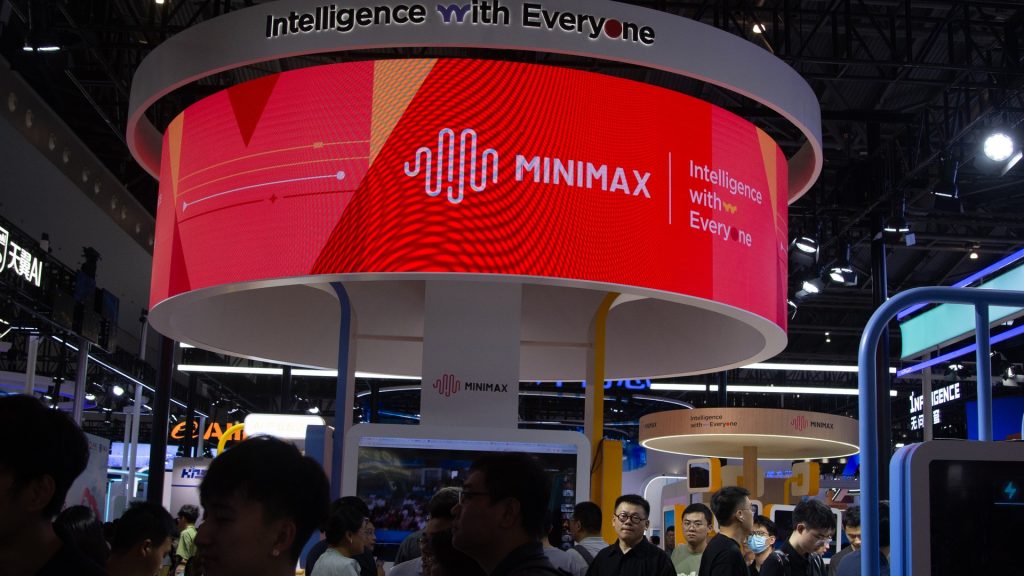Hollywood studio competitors unite to sue Chinese AI company

Darth Vader, Wonder Woman and the Minions all share a common grievance: they’re all being recreated without permission by a Chinese AI company. So say the Hollywood studios that sued the Shanghai-based MiniMax for swiping its content. Filed in a California federal court on Tuesday, the suit is the latest in a slew of copyright cases against artificial intelligence companies.
Though some of these film studios are competitors, they’ve joined forces in their fight against AI’s appropriation of their work. Disney, Warner Bros. Discovery and Universal Pictures claim in their 119-page complaint that MiniMax is using the studios’ copyrighted characters, swiping creative works to train AI and leveraging the characters to market its AI product, Hailuo AI.
A source familiar with the lawsuit told SAN that the studios are not anti-tech, they’re anti-theft. They want to hold bad actors accountable who abuse copyright laws and take artists’ work without permission.
“MiniMax’s copyright infringement is willful and brazen,” the complaint stated. “MiniMax markets Hailuo AI as a ‘Hollywood studio in your pocket’ – an audacious self-anointed nickname given that MiniMax built its business from intellectual property stolen from Hollywood studios like Plaintiffs… The Hailuo service offers its subscribers an endless supply of infringing images and videos featuring Plaintiffs’ famous copyrighted characters.”
MiniMax did not respond to SAN with comments, nor has it issued a public statement regarding the copyright suit filed this week.
The suit is the most recent in a long list of complaints against AI companies in the ongoing legal battle to determine what rights AI has in using creative work without permission from artists. Some say AI presents an existential threat to the film business — and creative industries at large.
“We remain concerned that copyright infringement, left unchecked, threatens the entire American motion picture industry,” Charles Rivkin, the CEO of the Motion Picture Association, said in a statement.
The copyright case
Although the AI company is domiciled in China, the Hollywood film studios filed their suit in California to apply U.S. copyright law to the foreign company.
MiniMax, they claimed, is building its business by plundering the studios’ intellectual property. MiniMax’s service, Hailuo AI, allows users to create content of iconic copyrighted characters.
In a joint statement to SAN, Disney, NBCUniversal and Warner Bros. Discovery said, “A responsible approach to AI innovation is critical, and today’s lawsuit against MiniMax again demonstrates our shared commitment to holding accountable those who violate copyright laws, wherever they may be based.”
“MiniMax’s bootlegging business model and defiance of U.S. copyright law are not only an attack on Plaintiffs and the hard-working creative community that brings the magic of movies to life, but are also a broader threat to the American motion picture industry, which has created millions of jobs and contributed more than $260 billion to the nation’s economy,” the complaint stated.
The studios asserted that the Shanghai company ignored requests from the studios to cease and desist.
“MiniMax completely disregards U.S. copyright law and treats Plaintiffs’ valuable copyrighted characters like its own,” the complaint claimed. “Not only has it failed to act on Plaintiffs’ requests to adopt the reasonable measures taken by several AI services to avoid infringement, MiniMax has actively engaged in and encouraged infringement.”
Different viewpoints
There are over 40 lawsuits in the U.S. that involve artists suing AI companies for allegedly taking their work without permission. Many artists, creative agencies, movie studios and authors believe that AI is exploiting artists by not giving them credit or compensation.
Some take it a step further, arguing that AI could plunder the creative industries and take careers.
“There is growing trepidation in creative industries,” according to Emory University, which interviewed its staff in creative fields about their feelings on the future of AI. “AI is writing sonnets, composing music and mimicking artists’ painting styles. Some creatives wonder how far AI will encroach on their livelihoods while it simultaneously trains on their novels, drawings, animations and music.”
But AI companies tend to take a different stance. Some argue that restricting what AI can use to train would limit innovation and slow progress in artificial intelligence.
Also, training their AI models using huge amounts of information and datasets is necessary, the companies hold, citing the fair use legal argument. It’s not copying the artists’ work because the end result is a different product, rather than a copy. This argument mirrors a core tenet of “fair use” laws, often hcited in journalistic works and other industries.
Landmark decision that could set precedent
In a historic decision where a class of authors took Amazon-backed AI company Anthropic to court, a judge in June ruled in favor of the AI company. The judge ruled that it is fair use because the end product is transformative; in other words, different than the artists’ original work.
However, how the AI companies obtain the creative works could still be illegal, for instance, if it’s downloaded from a pirate website, the judge said.
To settle with the authors and avoid a trial. Anthropic offered the largest settlement in U.S. copyright case history: $1.5 billion. If approved by the federal judge, it would amount to about $3,000 for 500,000 authors. This is the first copyright case to put a number on what it’s worth to use artists’ work to train artificial intelligence.
Legal ambiguity
With many lawsuits currently underway against AI companies, legal experts want clearer rules and to establish precedents on this new frontier of technology, art and AI.
What counts as fair use? How are AI companies legally allowed to obtain artist materials? When and how should artists and creative agencies be compensated and credited? Will new copyright laws and boundaries be set? Do ethical and moral boundaries need to be established?
As different lawsuits are resolved, whether at trial or with settlements, new standards will be set as we move into this next frontier.
The post Hollywood studio competitors unite to sue Chinese AI company appeared first on Straight Arrow News.





